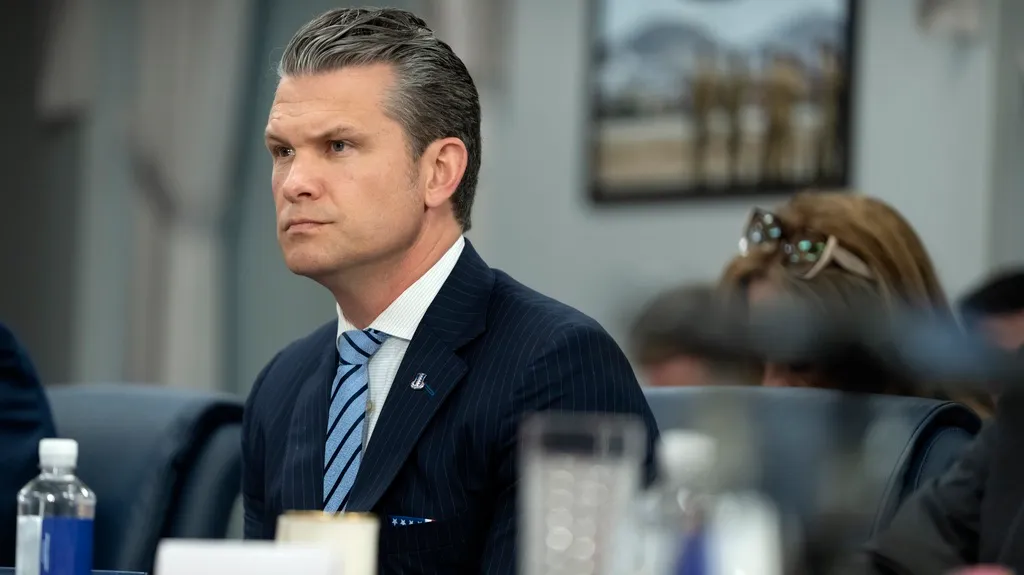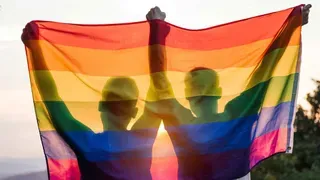March 31, 2013
South Florida's First Gay Retirement Home Paving the Way
Chris Sosa READ TIME: 5 MIN.
The 4,000-square-foot Secret Garden will provide either a shared or private room, meals and transportation for shopping outings and doctor appointments.
The kitchen features a hutch with lovely antique blue-and-white plates. One bathroom has a walk-in shower. And lounge chairs surround a good-sized shaded pool in the back.
So what makes this seven-bedroom property different from other large homes nearby? It's South Florida's first gay retirement home.
Tom Duffy, a retired catering business owner, converted what once was a small Wilton Manors assisted living facility to create his dream: Secret Garden, an independent living center where gay men can be themselves as they age.
"I want it to be like a family, more like a commune, I guess," said Duffy, 61, who lives on the property and has been interviewing prospective residents in the past two weeks.
The 4,000-square-foot Secret Garden will provide either a shared or private room, meals and transportation for shopping outings and doctor appointments. Duffy plans to have another person working full-time as his assistant, then other part-timers to do housekeeping, cook and plan activities.
Rents will range from $2,500 to $3,500 a month. The facility does not have an assisted living license, Duffy said, but he will help arrange home care for residents with short-term medical emergencies. And he'll help them look for gay-friendly nursing homes or assisted living if their care needs grow beyond what he can handle, he said.
Duffy, trailed by his three small white dogs, shows off the elaborately decorated sitting room with its coral rock fireplace, wicker chairs and scented candles. Gay men probably would find traditional senior living "too impersonal," he said. "I'm confident people will come here."
Who will care for them when they grow old and sick is a constant concern for gay and lesbian elders today, said Chris MacLellan, coordinator of senior services for SunServe, an LGBT social service agency in Wilton Manors.
"Most of them don't have family they can rely on, so they must turn to their friends and neighbors," MacLellan said. "Tom is taking a risk. But I think once he gets some referrals, it will just start to roll."
Secret Garden may not be the area's only gay retirement home for long. MacLellan said representatives from the Gay and Lesbian Elder Housing nonprofit group, which has built and operates popular gay and HIV-friendly, lower-income, government-subsidized apartments in other states, recently toured the area.
And Pete Phillips, president of Palm Beach-based Phillips Development Cos., said he's finalizing financing for Pineapple House in downtown Fort Lauderdale. The combined LGBT-friendly independent, assisted living and memory care center would feature almost 200 units, and have a relationship with Pineapple Point, an upscale gay men's resort on Fort Lauderdale beach.
What will make it work, Phillips believes: The units are rented not purchased, it's in an urban environment, and close to activities LGBT people like.
Communities that struggled
Whether LGBT care centers and retirement complexes become a widespread reality, however, remains to be seen, despite the fact that demographers are predicting there will be 3 million gay Americans older than age 65 by 2030.
Developing gay-friendly retirement housing has been labeled an emerging trend for more than a decade, and a handful of communities have been built around the country. Most are far larger than Duffy's version, with complexes containing as many as 100 or more units, and attached assisted living units for residents who may need more care as they age.
Yet while developers have eagerly explored the new potential niche market, one proposal after another has died on the vine. Many among the few communities nationwide that got off the launch pad have floundered, victims of declining real estate values, poor management or a too-shallow financial foundation.
Hilary Meyer, director of the National Resource Center on LGBT Aging, said it's "baffling why these places aren't thriving. There is so much interest. I really don't have an answer."
The Palms of Manasota, which was hailed as the country's first true LGBT senior community when it opened south of Tampa in 2000, today is in bankruptcy.
Ron Lennon, a college professor formerly from Fort Lauderdale, and his partner bought a villa in the Palms 10 years ago for two reasons: Like many retirees, they wanted a scaled-back lifestyle in a quieter place that still had an arts scene. And like many gays and lesbians, "we wanted to be with like-minded people," said Lennon, who is the president of one of the Palms' two homeowner associations.
The development failed because it was underfunded, Lennon said, causing it to financially collapse in the market downturn. Now some of the foreclosed units are starting to sell - in some cases to straight homeowners who think gay men would make good neighbors, he said.
"They say they feel safe and secure here," Lennon said. "We do things with some of our straight neighbors. We go to dinner and events. It's interesting how our community has evolved over time."
RainbowVision - one of the most widely publicized ventures, catering to lesbians but welcoming to all - also is in bankruptcy. It opened outside Santa Fe, N.M., in 2006. Since then, the roughly 100 residents who envisioned a new utopia found themselves locked in bitter financial battles with management, some filing lawsuits. RainbowVision Properties, which is no longer connected to the Santa Fe operation, now is involved in creating a Vancouver community with a Canadian partner, Plum Living Properties & Health Services.
Financing frustrations
Business partners Cork Chicota and John De Leo of Shaman Development, had similar hopes for eastern Broward County when they joined forces in 2002 and began pulling together multiple projects. They tried everything: a 300-plus unit, high-end, resort-style building that included an advance care wing; a conversion of an existing building; and a small complex supported by tax or government dollars and open to lower-to-moderate-income seniors.
But the financing never gelled for any of them, the partners say, as the housing market turned sour in 2007 and no successful models emerged. Shaman was 45 days from breaking ground on a Fort Lauderdale project in 2008 when the bank, frightened by the RainbowVision fracas, pulled the loan, they said.
Most frustrating, said De Leo, was that LGBT people attending their focus groups insisted senior housing was needed but then wouldn't put down deposits or funding.
"The reality is that while there is a lot of talk, there isn't the level of support required for these projects anywhere in the country," De Leo said. "The seniors who are well off have the money to go wherever they want and can fend for themselves. The whole resort concept and continuing care model we looked at failed, as it has failed for others."
Shaman now has dropped its LGBT focus and is looking at small cottage-style senior developments.
Bruce Gibson, head of Senior Capital Advisors in North Miami, thinks the problem is that there are no prominent examples of long-standing successful LGBT retirement communities to lure risk-adverse lenders - yet. But he thinks the demand will emerge rapidly, as more gay and lesbians boomers come out and any stigma about catering to that niche disappears.
Meyer, of the National Resource Center on LGBT Aging, speculated one reason gay senior housing can't get out of the starting gate is the communities are too scattered, and elders don't want to leave their home states.
Another issue may be the new options are too expensive for many gays and lesbians, who can't tap into their partners' Social Security benefits or pensions. Affordable gay- and lesbian-friendly senior housing projects, which are nonprofits and have resident income limits, have been the most successful so far, Meyer said. Ones such as Triangle Square, in the Los Angeles area, consistently have waiting lists.
Ultimately, the small, creative options like Duffy's Secret Garden may be the ones to pave the way, Meyer said. "As record numbers of LGBT people enter retirement, it seems like there will be a potential market."
[email protected] or 954-356-4295
Secret Garden: The senior independent living center catering to gay men is at 545 NE 23rd St., Wilton Manors. For more information, call 561-703-3306.






